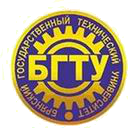Sankt-Peterburg, St. Petersburg, Russian Federation
Sankt-Peterburg, St. Petersburg, Russian Federation
Military academy of communications named after Marshal of the Soviet Union S.M. Budyonny (department of radio communications, professor)
Saint-Petersburg, Russian Federation
An approach to the quantitative assessment of the open social system efficiency of a non-technical nature is con-sidered. The task is formulated from the standpoint of assessing complex indicators that take into consideration the conditions of external influences on an open non-technical system. Formalizing the formulated problem is carried out within the framework of the reliability theory methods. A two-parameter generalized analytical expression is obtained for calculating a probabilistic assessment of the open system efficiency, taking into consideration the nature of destructive impacts. An approach to calculating the probability of failure-free operation of such systems is substantiated, considering the frequency of failures caused by negative consequences from destructive impacts. The results of analytical modelling are presented in assessing the probabilistic indicators of open non-technical systems, in which the degradation of ongoing processes can be described on the basis of an exponential law. The processes of a non-technical nature corresponding to the specified distribution are given, which include the aging of information, the level of residual knowledge, the number of divorces by the number of years lived, motivational stability, etc., characteristic of such areas as pedagogy and psychology. The author considers an example of applying a reasonable approach in relation to the “burnout syndrome” based on analysing control points and time intervals, which allows predicting the future state of the diagnosed person according to the current assessments. Conclusions are made and directions for further research are determined.
probabilistic model, open system, probabilistic assessment, destructive impact
1. Novikova S.S. Sociology: the History, Foundations, In- stitutionalization in Russia. Moscow: Moscow Psychology and Social Institute; Voronezh: NPO “MODEK”; 2000. 464 p.
2. Pavlenko I.I. Influence of Informatization on Social Systems and Processes and on Systems and Processes of Social Management. European Social Science Journal. 2012;4(20):436-452.
3. Kondratenko S.V., Spasennikov V.V. Methods of Analysis and Modelling Activities of Operators in the Process of Ergonomic Software Development and Operation of Man-Machine Systems. Bulletin of Bryansk State Technical Univer-sity.2015;1(45):87-94.
4. Dvornikov S.V., Kryachko A.F., Pshenichnikov A.V. The Radio-Technical Systems Simulation in Conflict Situa- tions of a Cognitive Nature. In: Proceedings of the 22nd Inter- national Scientific Conference in 2 parts: Wave Electronics and Information and Communication Systems; St. Petersburg: St. Petersburg State University of Aerospace Instrumentation: 2019. p. 84-89.
5. Dvornikov S.V., Pshenichnikov A.V., Avanesov M.Yu. Cognitive Destruction Effect Model. Information and Space. 2018;(2):22-29.
6. Petukhov G.B., Yakunin V.I. Methodological Basis of External Design of Purposeful Processes and Purposeful Sys- tems. Moscow: AST; 2006. 502 p.
7. Dvornikov S.V., Pshenichnikov A.V., Rusin A.A. Generalized Functional Model of a Radio Link Control its Frequency Resource. Questions of Radioelectronics. Series: TV Technique. 2016;(3):49-56.
8. Popkov V.I., Spasennikov V.V. Model of Interaction between Universities and Machine-Building Enterprises in the Interests of Their Innovative Development. Sociology of Edu-cation. 2015;(3):36-45.
9. Rotach V.Ya. Theory of Automatic Control. Moscow: MPEI Publishing House; 2004. 400 p.
10. Zinkovsky K.V. Investigating the Mechanisms for Reforms in Large Social Systems: Case Study of the General Education System. Educational Studies. 2008;(3):145-155.
11. Sidorkina V.M., Fadeeva I.M. Family Values in a Regional Society: Factors of Change. Regionology. 2017;25(4):628-641.
12. Krasilnikova O.V. Pandemic as a Factor Influencing Conflict in the Family. Actual Scientific Research in the Mod-ern World. 2021;10-8 (78):36-38.
13. Dvornikova O.F., Tatarnikova I.M., Dvornikov S.S., Smelov A.E. A Probabilistic Model for Evaluating the Efficiency of Open Information Systems under Destructive Impacts. Part 1: Analytical Modelling. Scientific and analytical journal Bulletin of St. Petersburg University of the State Fire Service of the Ministry of Emergency Situations of Russia. 2020;(1):42-50.
14. Wenzel E.S. Probability Theory. Moscow: Nauka; 1969. 576 p.
15. Ezhova G.L. Information-System Approach to the Study of the Pedagogical System as a Part of the Social System. Modern Pedagogical Education. 2017;(4):14-16.
16. The World Happiness Report 2018 [Internet]. 2018 Mar 23 [cited 2022 Mar 20]. Available from: https://ru.wikipedia.org/wiki/World_happiness_report.
17. Brooks B. Aging of Scientific Information. Problems of Informatics. Moscow: VINITI; 1973.
18. Bulgakov O.M., Ladyga A.I., Ryaboshapko O.N. In- terpretation of the Results of Residual Knowledge Control Using Elements of Correlation Analysis and Mathematical Sta- tistics. Vestnik of Voronezh Institute of the Russian Federal Peniten- tiary Service. 2018;(2):38-45.
19. Dorofeeva L. Real Statistics of Marriages and Di- vorces in Russia until 2019 [Internet]. 2020 [cited 2022 Mar 1]. Available from: https://pravovoiexpert.ru/brak/statistika- brakov-i-razvodov/.
20. Dvornikova O.F., Samokhin S.V., Dvornikov S.V. Analyzing the First-Year Students’ Motivation in Choosing a Technical University During a Pandemic. Ergodesign. 2022;1(15):45-50. doi:https://doi.org/10.30987/2658-4026-2022-1-45-50.
21. Mosikyan K.A., Barseghyan M.S. Development of the Concept of Determining the Depreciation Life of a Car. Eurasian Union of Scientists. 2017;1-1(34):52-55.
22. Boyko V.V. Burnout Syndrome in Professional Com- munication. Saint-Petersburg; 2009. 278 p.












